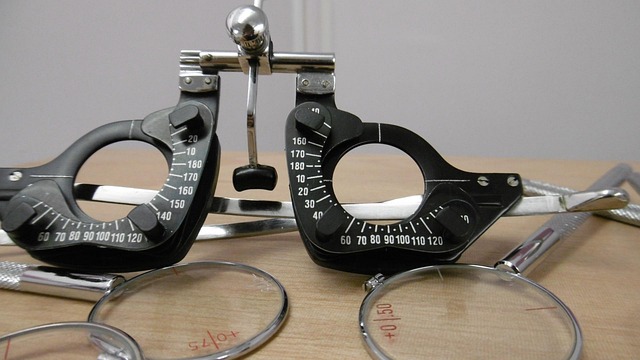Iron deficiency anemia, a common blood disorder in the UK, presents symptoms like fatigue, weakness, and dizziness. Early detection through accessible UK cholesterol blood tests is key, as risk factors include menstrual blood loss, gastrointestinal disorders, and iron-deficient diets. Blood tests measuring ferritin, haemoglobin (Hb), and haematocrit (Hct) are crucial for diagnosis. Understanding reference ranges (e.g., ferritin < 20 mcg/mL, Hb < 12 g/dL for women or < 13 g/dL for men) guides treatment, including oral iron supplements, dietary changes, IV therapy, and blood transfusions, with regular monitoring via UK cholesterol blood tests.
Iron deficiency anemia is a common yet serious health condition, particularly in the UK. This comprehensive guide delves into the world of anemia detection through blood tests, specifically focusing on iron levels. Understanding symptoms and risk factors is key, as it helps healthcare professionals navigate the diagnostic process. In the UK, cholesterol blood tests often play a crucial role in identifying iron deficiency anemia. This article explores how these tests interpret results and offers available treatment options to manage this condition effectively.
- Understanding Iron Deficiency Anemia: Symptoms and Risk Factors
- How Blood Tests Help Diagnose Iron Deficiency Anemia in the UK
- Interpreting Results and Available Treatment Options
Understanding Iron Deficiency Anemia: Symptoms and Risk Factors
Iron deficiency anemia is a common blood disorder that occurs when your body doesn’t have enough healthy red blood cells to carry adequate oxygen to your body’s tissues. This can lead to various symptoms, including fatigue, weakness, pale skin, shortness of breath, and dizziness. It’s important to recognize these signs early on as they can be easily missed.
Several risk factors contribute to iron deficiency anemia, such as blood loss from periods or gastrointestinal disorders, poor diet lacking in iron-rich foods, and certain medical conditions affecting absorption. In the UK, a simple cholesterol blood test often includes measurements that can indicate anemia, making it an accessible tool for early detection. Regular screening is crucial, especially for individuals with risk factors, to prevent complications and ensure timely treatment.
How Blood Tests Help Diagnose Iron Deficiency Anemia in the UK
In the UK, blood tests play a pivotal role in diagnosing iron deficiency anemia. These tests are essential tools for healthcare professionals as they provide clear indicators of the presence and severity of this common nutritional disorder. By analysing a sample of your blood, doctors can measure several key markers, such as ferritin levels, which directly correlate with iron storage in the body. Low ferritin levels often point to iron deficiency, suggesting that your body isn’t retaining enough iron from your diet.
In addition to ferritin, healthcare providers may also check for haemoglobin (Hb) and haematocrit (Hct) levels. Haemoglobin is a protein in red blood cells responsible for carrying oxygen, while haematocrit measures the percentage of red blood cells in your blood. Deficiencies in these components can indicate iron deficiency anemia, as they directly impact the health and functionality of red blood cells. A UK cholesterol blood test might also be conducted incidentally during diagnosis, focusing on overall cardiovascular health, which is closely linked to managing anemia effectively.
Interpreting Results and Available Treatment Options
When interpreting the results of an iron deficiency anemia blood test, it’s important to understand the reference ranges provided by the laboratory. A ferritin level below 20 micrograms per milliliter (mcg/mL) is often indicative of iron deficiency. Red blood cell (RBC) count and hemoglobin levels are also key indicators; a hemoglobin level below 12 g/dL in women and 13 g/dL in men may suggest anemia.
Treatment options for iron deficiency anemia include oral iron supplements, which can be effective for mild to moderate cases. Dietary changes, such as increasing the intake of iron-rich foods like leafy greens and red meat, can also help. In more severe cases, intravenous (IV) iron therapy or blood transfusions may be recommended by healthcare professionals in the UK. Regular monitoring through subsequent cholesterol blood tests and other relevant screenings is crucial to ensure successful management and prevention of further complications.
Iron deficiency anemia is a common yet treatable condition, and blood tests play a pivotal role in its early detection within the UK. By understanding the symptoms and risk factors, individuals can be proactive about their health. A simple UK cholesterol blood test can reveal iron levels, enabling prompt action to manage or prevent anemia. With accurate interpretation of results, healthcare professionals can offer effective treatment options, ensuring optimal well-being.
